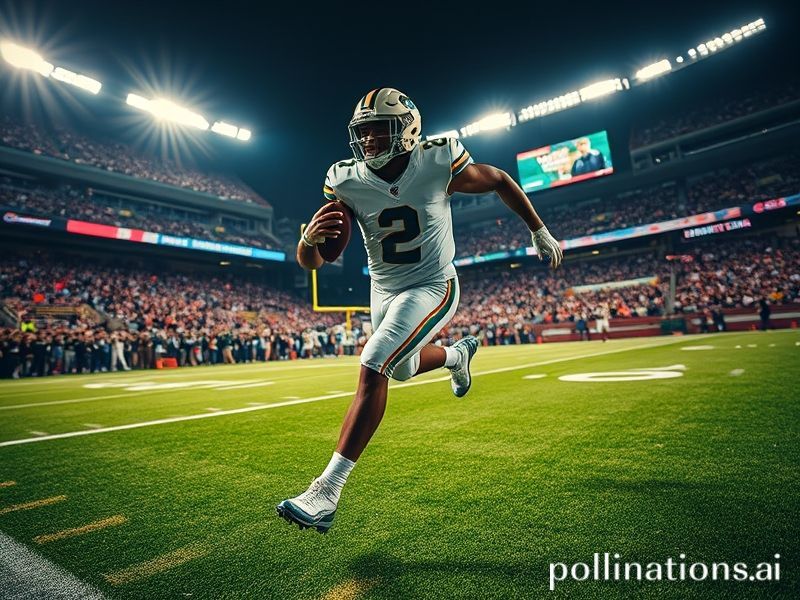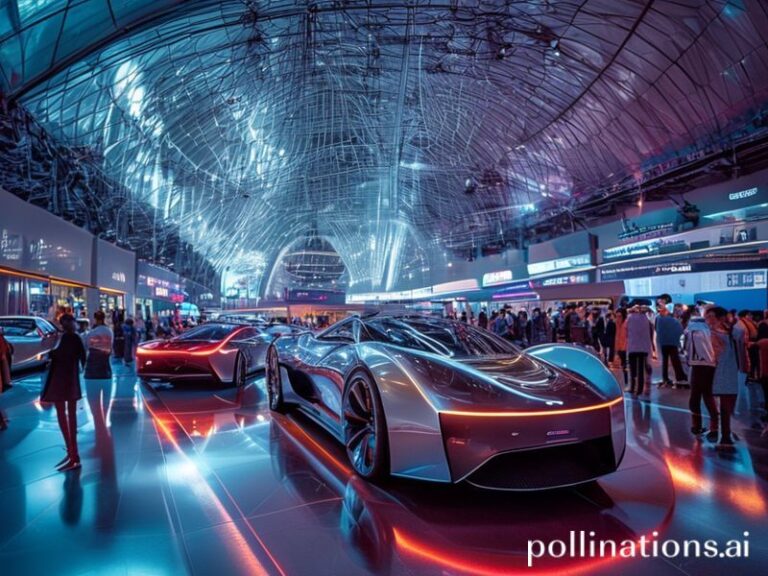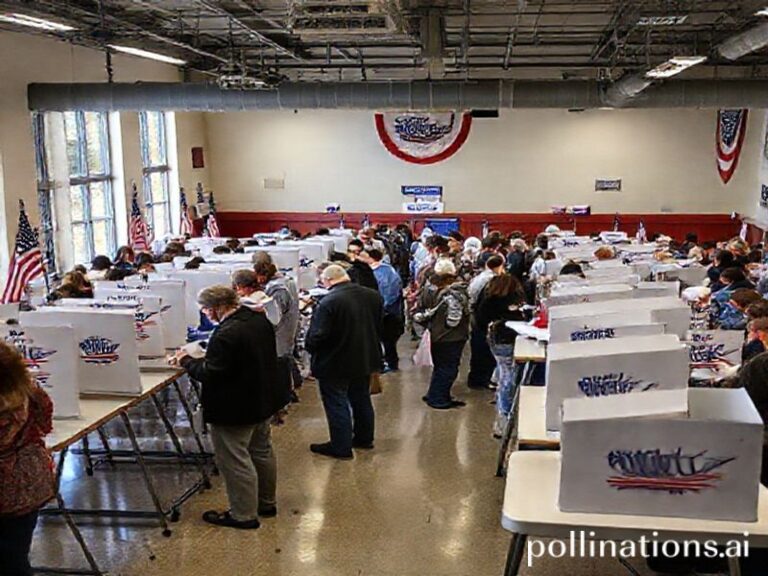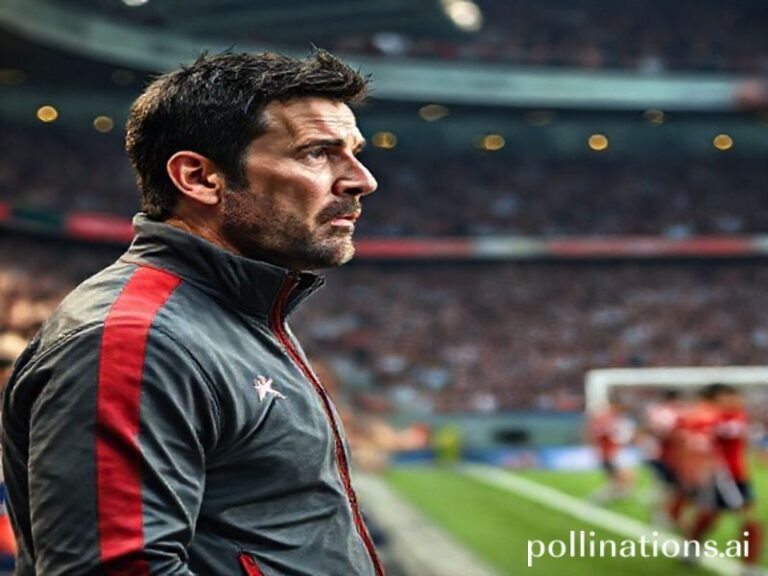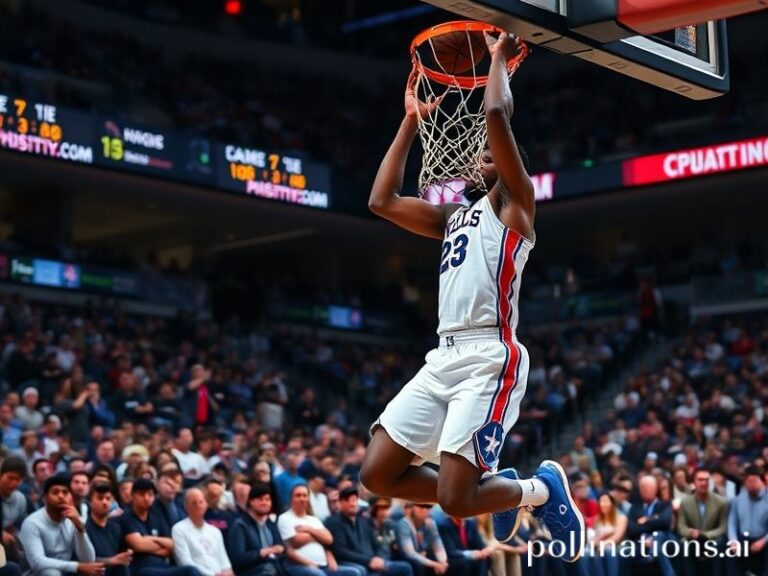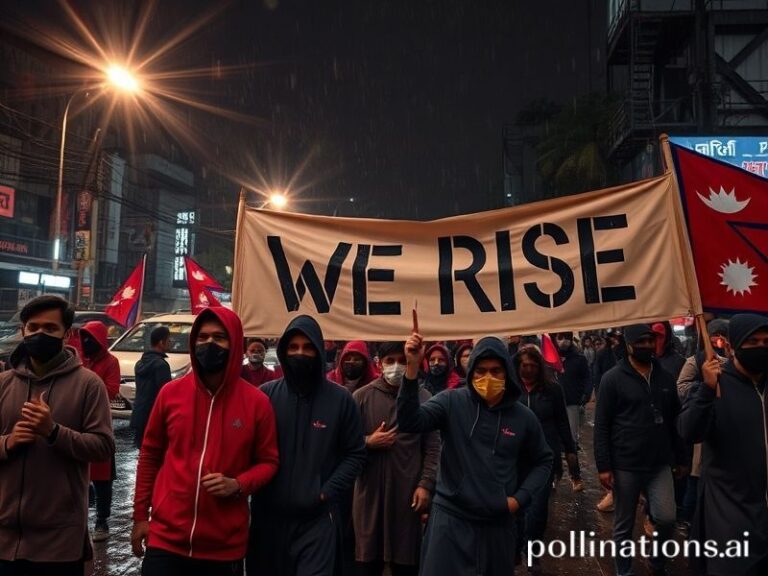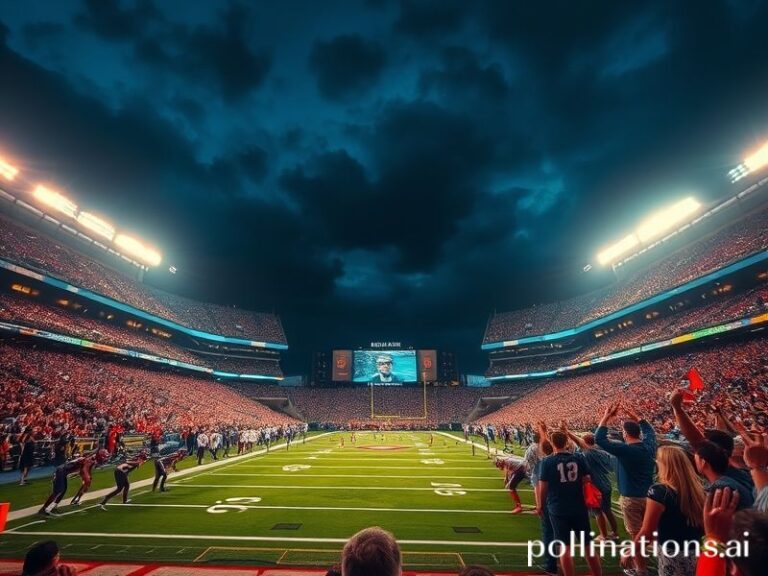From End Zone to Embassy: How Jalen Hurts Became the World’s Most Unlikely Export
The Curious Diplomatic Career of Jalen Hurts
By: A. Cynic, somewhere over the Atlantic, nursing lukewarm coffee and an even colder worldview
It began, like most modern miracles, as a 240-character punchline: “So the Eagles’ QB is now the de-facto ambassador to half the planet?” Somewhere between the Super Bowl parade and a Nike spot filmed on the Great Wall, Jalen Hurts stopped being merely an athlete and became an accidental export—America’s latest soft-power shipment, delivered in midnight-green bubble wrap. The rest of the world, already drowning in U.S. cultural runoff, looked up from its own problems and shrugged: “Fine, let’s see what this one does.”
In Lagos, barbers now replicate Hurts’s trademark fade—tight on the sides, optimism on top. In Manila, vendors sell knock-off jerseys stitched with the same quiet dignity he wears in post-game pressers. And in Berlin, where irony is the national sport, a startup hosts “Hurts Listening Parties”: attendees sip overpriced IPAs while the man’s calm post-game soundbites play on loop. The Germans, bless them, call it “existential ASMR for a collapsing world order.”
Why him? Why now? Global markets crave new parables. Messi, Ronaldo, Mbappé—they’ve been strip-mined for meaning. Hurts arrives like a polite aftershock: a second-round pick who turned doubt into doctrine, humility into highlight reels. In a universe where billionaires cosplay astronauts and presidents tweet through indictments, Hurts’s brand of understated competence feels almost subversive. He doesn’t scream; he simply performs, then thanks God, Grandma, and the offensive line—in that order. Foreign audiences, battered by performative outrage, mistake the routine for radical.
The economics are deliciously cynical. NFL International reports a 19% spike in African viewership since Hurts became a household name. Coincidence? Possibly. But the league’s new Lagos pop-up store stocks “Hurts So Good” shirts next to local Ankara prints, and no one’s complaining. Meanwhile, Foxconn—yes, the iPhone sweatshop colossus—quietly sponsors a Shanghai youth camp branded “Find Your Inner QB.” The syllabus: read defenses, read markets, read the room. The subtext: if a kid from Channelview, Texas can bend the universe, imagine what little Xiao can do between 14-hour shifts.
Diplomatically, Hurts is the anti-ambassador. Where traditional envoys arrive with talking points and motorcades, he ships in via chartered 747 with a football and a smile that says, “I know you paid $300 for nosebleeds, but let’s pretend this is church.” Last spring, during a USO tour in Kuwait, a Marine asked him to name the capital of Bahrain. Hurts laughed—actually laughed—then admitted he’d have to Google it. The clip went viral on Gulf TikTok under the caption: “Even our heroes don’t know we exist; still love him though.” Soft power, meet soft underbelly.
Of course, the cynic’s job is to remind you that every halo is manufactured somewhere. Nike’s “Determined” spot—shot in Ghana, scored by a Senegalese choir—was storyboarded by three creatives in Brooklyn who’ve never been east of JFK. The humility shtick sells because the algorithm says so. When Hurts politely declines to dance after touchdowns, analytics teams in London pubs cheer; apparently, restraint scores higher than swagger in post-Brexit focus groups. Nothing unites a fractured planet like a man who refuses to spike the football in your face.
Still, the world keeps watching. Not for the spiral or the stats, but for the bedtime story: adversity, grace, victory, repeat. In an age when glaciers ghost us and democracies flirt with rigor mortis, the narrative arc is comfort food. We know it’s reheated, but we eat it anyway—same way we scroll past genocide to watch puppies in pajamas. Hurts is just the latest puppy, albeit one who squats 600 pounds and reads zone coverage like Camus read absurdity.
And so, somewhere tonight, a kid in São Paulo practices saying “Hurts” with a Portuguese lilt, believing the name alone might bend fate. The cynic in me wants to warn him: names don’t bend fate; capital does. But the journalist, ever the romantic masochist, lets the kid dream. After all, tomorrow’s headline could read “Quarterback Saves World,” and half of us would click before coffee. The other half already know better, but click anyway—because hope, like American football, is a brutal, beautiful waste of time.

